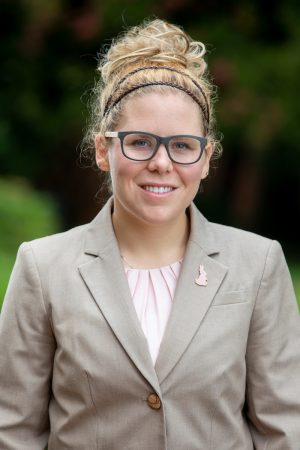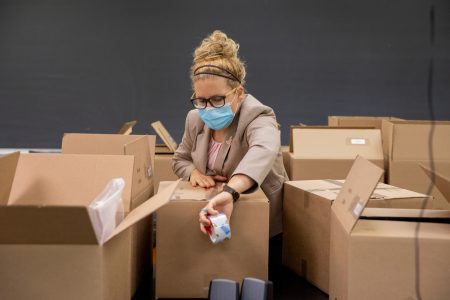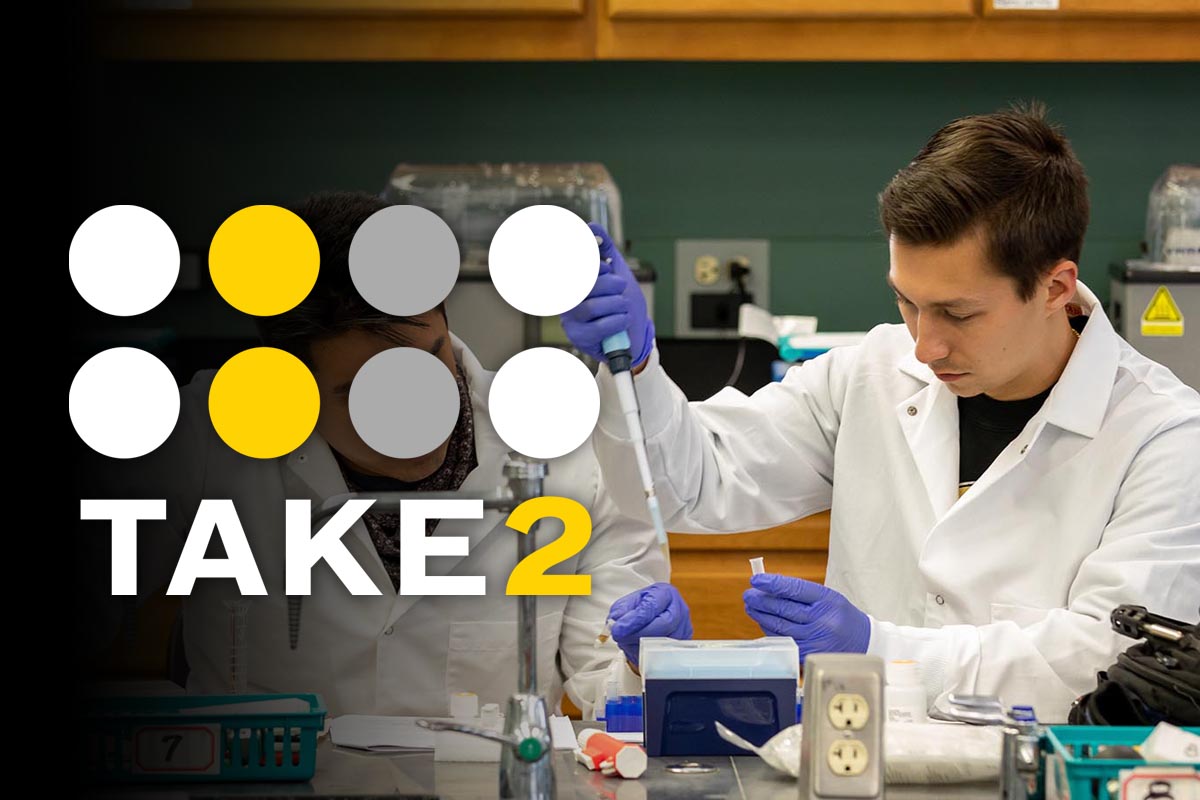Q&A with new faculty: Erin Heller

Erin Heller
Randolph College’s 2020-21 academic year is officially underway, and there are several new faces among the faculty.
Erin Heller has joined Randolph as a visiting assistant professor of biology. This fall, she’ll be teaching zoology, with a corresponding lab course, as well as Principles of Conservation Biology.
Here’s what she had to say about her background and teaching style, how she transitioned her courses online, and what she’s most passionate about:
Where are you originally from, and what is your career/educational background?
“I grew up in Richmond, where my family still lives. I have a Bachelor of Science in wildlife science from Virginia Tech, a Master of Science in biology from Old Dominion University, and a Ph.D. in fisheries and wildlife sciences from Virginia Tech. My master’s thesis looked at the effects of urbanization on bird-tick relationships in southeastern Virginia, and my Ph.D. dissertation addressed factors that affect a federally-threatened migratory shorebird called the red knot (Calidris canutus rufa).”
How did you first become interested in your field of study?
“Growing up, I loved animals. My parents were constantly sending me back to the creek to return the minnows, tadpoles, salamanders, crayfish, etc. that I brought home. Because I loved animals and was fascinated by the natural world, my friends and family always assumed I would become a veterinarian, so I spent a lot of time working at vet clinics growing up.
“When I started college, a friend of mine was in Virginia Tech’s wildlife science major. She always talked about the awesome classes she was taking, where she got to be outside exploring nature. This was my first exposure to a different type of animal-related field. I soon realized that I was not interested in medicine and switched majors. My undergraduate advisor who helped me switch majors ended up becoming my Ph.D. advisor, many years later, and is a life-long mentor and friend.”
What attracted you to the job at Randolph?
“I was attracted to Randolph because of its reputation for teaching excellence and its emphasis on providing students with a well-rounded education. It really impressed me that the biology department consists of faculty members representing many of the major branches of biology, providing students with a wealth of knowledge across many facets of the biological world. This approach truly helps prepare students for anything their scientific futures may hold. During my interview, I quickly realized how close faculty were with students and how comfortable students felt around the faculty, which really solidified that Randolph was a great place to learn and to teach!”
Describe your teaching style. What can students expect in your classes?
“I would describe my teaching style as flexible, compassionate, and rigorous. I expect my students to come prepared for class and to work hard; however, I am a firm believer that demonstrating that you care and that you are human, too, helps students feel comfortable with you and encourages them to want to succeed in your class. I believe that my job as an educator is to provide students with the background and tools needed to think critically, individually, collaboratively, and scientifically so that they may arrive at their own conclusions and be able to both qualitatively and quantitatively reason.”
How have you adapted your classes to remote learning this semester?
“Determining how to transition a dissection-based lab was definitely the most challenging aspect of planning for remote learning this semester; however, I am really proud of what the department and I were able to do for our students. Each student is receiving a package in the mail that contains all of the specimens and tools they need to successfully complete all of the dissections we would normally do in-person. I have developed self-guided handouts and worksheets and will provide videos demonstrating each dissection so that students can work on their dissections at home. I am also offering students the opportunity to meet with me and other interested students during assigned class times for additional guidance on their dissections.

Visiting biology professor Erin Heller gets dissection lab kits ready to ship to students taking her zoology course this semester.
“For my lecture-based courses, I am utilizing a hybrid synchronous and asynchronous approach. Monday and Wednesday classes are presented asynchronously, while Fridays consist of synchronous meetings during which we will primarily discuss current event articles that relate to the material presented earlier that week. My hope is that these synchronous meetings will encourage students to think outside of the box and of the relevance of what they are learning in regards to the ‘real world.’ I am a strong proponent of students learning to communicate effectively, especially in regards to topics that may have many different perspectives. Fostering that skill will be the major goal of our Friday meetings.”
Could you talk more about your passion for diversity and inclusion initiatives and pedagogical practices?
“Inclusion and diversity are very important to me personally and professionally. I have been honored to receive recognition for my efforts in these initiatives through Virginia Tech’s Excellence in Access and Inclusion Award and Old Dominion University’s Champion of Diversity award. As a member of several minority communities and as a mentor to students, I strive to be cognizant of issues concerning inclusion, diversity, and equity and to be involved in ways to disrupt these issues.
“Not every student learns in the same manner. Because of this, I have used and will continue to use various forms of classroom activities and assignments that cater to the needs of diverse students in different ways. I have learned many of these techniques through my participation in VT’s Future Professoriate, Diversity Scholar, and Global Perspectives programs. My experiences as a member of various underrepresented groups have taught me how to mentor students and how to empathize and sympathize with others who may face similar challenges. As a faculty member, I will continue to be involved in diversity, inclusion, and equity initiatives by maintaining an open-door policy with students, incorporating diverse pedagogical practices within my classroom, and through ensuring that my office, lab, and classroom are safe and brave spaces for students.”
What are your initial impressions of Randolph and its students?
“I have been really impressed with Randolph as a whole thus far. I know it was a very challenging decision for the school to move 100 percent online several weeks ago. However, I think that was the best decision given the serious nature of COVID, and it proves that Randolph cares first about the health and safety of its community. Everyone I have met has been very friendly, supportive, and helpful. Students seem excited to be back in school, and I was impressed with how well they were able to transition to a remote learning environment, especially as we dealt with the Zoom outage the first day of classes.”
What do you like to do outside of the classroom as far as hobbies or other activities?
“My spouse and I spend a lot of time hiking. We are always looking for new hikes to try. We also have three rescue dogs, Rocky, Riley, and Zoey, who we enjoy spending time with, and we foster puppies regularly as well! For some solitary time, I enjoy going on runs in the evenings, where I have the opportunity to reflect on the day and listen to an audio book.”

